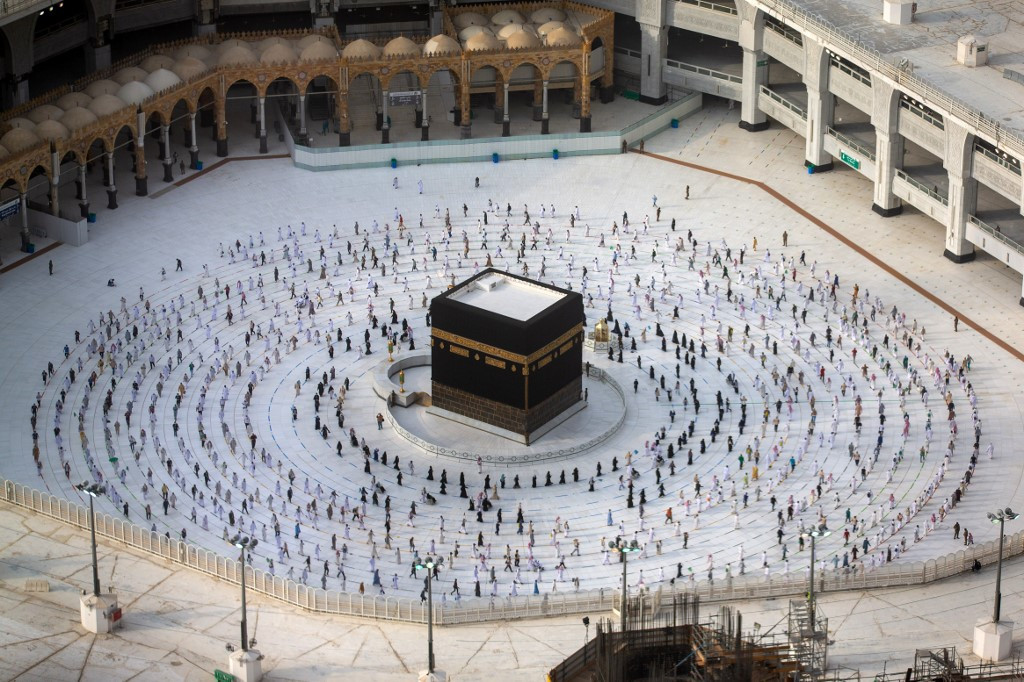Popular Reads
Top Results
Can't find what you're looking for?
View all search resultsPopular Reads
Top Results
Can't find what you're looking for?
View all search resultsA safe pilgrimage
All things considered, there is no way the government would be able to guarantee a certain level of safety for the pilgrims.
Change text size
Gift Premium Articles
to Anyone
F
or hundreds of thousands of Indonesian Muslims who have waited for years or even decades to get the chance to perform the haj pilgrimage, one of the five tenets of Islam, the government’s decision to cancel haj this year is indeed devastating.
The haj is a key ritual that not every Muslim is able to achieve—financially or physically. For the faith’s believers, the opportunity to get to Mecca and Medina, the two holy places where the Prophet Muhammad initially spread the teachings of Islam, is a great privilege, a blessing from God. But the local and global pandemic numbers have shown that neither Indonesia nor the world have got COVID-19 under control and it would be very untimely for the government to organize the travel of about 200,000 pilgrims from Indonesia to Saudi Arabia.
Religious Affairs Minister Yaqut Cholil Qoumas is right. The cancelation is “a bitter pill that we have to swallow”. All things considered, there is no way the government would be able to guarantee a certain level of safety for the pilgrims. We thus support the ministry’s decision, even though the Saudi authorities have yet to decide on whether to open their borders for haj pilgrims this year.
With a resurgence in the number of coronavirus cases in countries with the largest numbers of pilgrims such as India, Iraq, Iran and Malaysia, chances are slim that the local authorities would be able to contain the spread of the virus should they opt to open their borders this year. Indonesia is also expected to see a spike in cases in the next few days as a result of the government’s failure to curb mobility during the Idul Fitri holiday. In fact, cases have already gone up in many regencies in East Java.
It does not help that the vaccination rate has been sluggish globally, especially in the Muslim world, while the new virus variants have posed a new challenge to the global race for herd immunity. It is only natural for the Saudi authorities to suspend their decision on the haj. While many Indonesian pilgrims have been or will later be injected with Sinovac vaccines, which has been approved by the World Health Organization, Saudi Arabia has yet to approve the use of the Chinese vaccine for pilgrims.
The Kingdom of Saudi Arabia will soon announce its decision after completing its assessment of the current pandemic situation, but the government has said that it will stick by its call to postpone the departure of this year’s registered pilgrims.
What matters for the government is to ensure that those who are supposed to depart for the haj this year and last year can go as soon as it is safe to do so. This will not be easy and requires careful planning from the ministry and other stakeholders.
As the country with the largest Muslim population in the world, Indonesia sends the largest number of haj pilgrims to Saudi Arabia annually. It has an obligation to keep its citizens and also those of other countries safe while performing the ritual.










